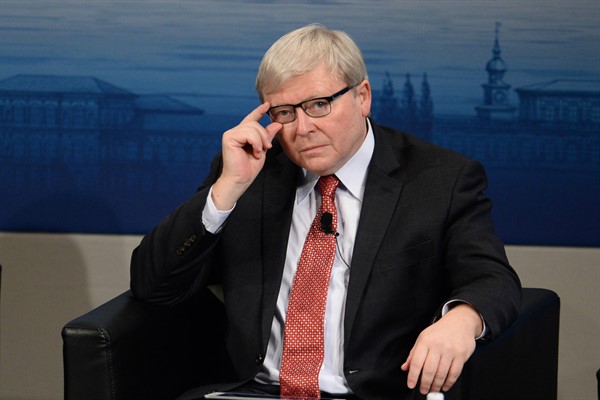Over the past five years, and accelerating amid the coronavirus pandemic, a new consensus on China has emerged and consolidated in the capitals of many Western and Asian democracies. The hope that China’s integration into the global economy will gradually result in a softening of its posture abroad and political liberalization at home has faded, particularly under the rule of Xi Jinping. China has shown little willingness to remedy the unfair trading practices it has long used to tilt the playing field in its favor during its rise as an economic power. And under Xi, the Chinese Communist Party has reasserted its centrality across all sectors of Chinese society, while closing off what little space for political dissent it had tolerated. As a result, in the U.S., Europe and Asia, many governments have begun preparing for a period of strategic rivalry with China, in which competition will outweigh cooperation and increased friction in relations with Beijing will become the new normal.
Today on Trend Lines, WPR editor-in-chief Judah Grunstein is joined by Kevin Rudd to discuss the nature of the challenge China poses to the West, the implications of Xi Jinping’s rule, and the future prospects of both China’s rise and America’s global leadership role. Mr. Rudd is president of the Asia Society Policy Institute and a former prime minister of Australia. During his early career as a diplomat, he served in the Australian Embassy in Beijing, and he has long been a highly regarded observer and analyst of China’s domestic politics and foreign policy. Click here to read the full transcript of the interview.
Listen:
Download: MP3
Subscribe: Apple Podcasts | RSS | Spotify
Relevant Articles on WPR:
When It Comes to Soft Power, China Is Already Outpacing the U.S.
Beijing Will Come to Regret the End of Hong Kong’s Autonomy
As China Rises and U.S. Influence Wanes, Australia Aims for Self-Reliance
China’s Coronavirus Outbreak Exposes the Limits of Xi’s Centralized Power
Is China’s Repressive Turn Under Xi a Sign of Strength—or Weakness?
If you like what you hear on Trend Lines and what you’ve read on WPR, you can sign up for our free newsletter to get our uncompromising analysis delivered straight to your inbox. The newsletter offers a free preview article every day of the week, plus three more complimentary articles in our weekly roundup every Friday. Sign up here. Then subscribe.
Trend Lines is edited by Peter Dörrie, a freelance journalist and analyst focusing on security and resource politics in Africa. You can follow him on Twitter at @peterdoerrie.
To send feedback or questions, email us at podcast@worldpoliticsreview.com.

